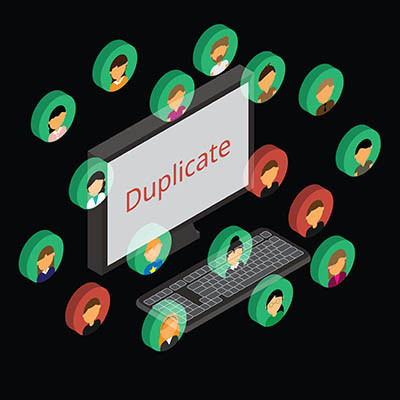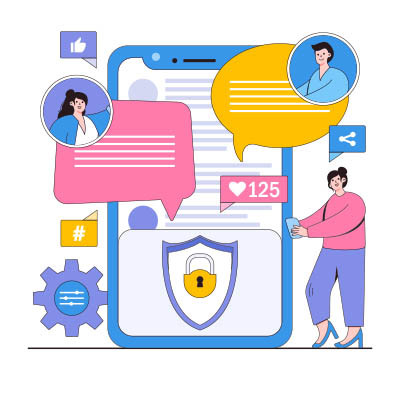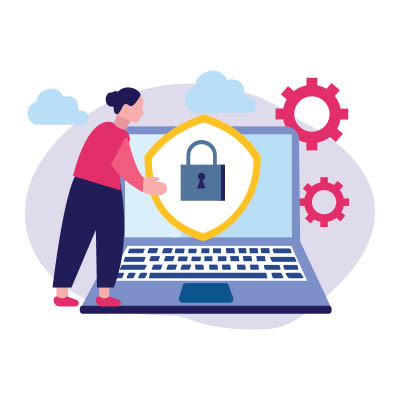Have you ever reached for your phone to check a quick notification, only to look up forty minutes later feeling drained, agitated, and behind on your schedule? For a business owner, this is more than just a bad habit, it’s a thief. While you are busy protecting your revenue and managing your team, these habits serve as an invisible tax on your focus.
415 IT Blog
You've heard the grumbling, seen the memes, and probably even felt it yourself: that vague, all-powerful entity known as the algorithm. It's blamed for everything from political polarization to your inexplicable obsession with people eating military rations. What exactly is it, and what digital giants are pulling its strings?
We all have too many accounts nowadays. Between our personal lives, work, and practically all the entertainment we consume, there are dozens to keep track of and manage… and then there are the ones that charge us for a service they offer. The stacking costs of these services are bad enough, but if you see them start to double or even triple in a given month, you may be experiencing a common problem that is simple enough to solve.
To do so, we need to clarify the difference between creating an account and logging in.
These are turbulent times. Social media is an undeniable force in our modern lives, for the good and the bad. Anyone that has gotten into a discussion on their favorite social service knows how it can escalate very quickly. Navigating these digital mediums with intention is key to making it a positive and productive part of your life.
In this month’s newsletter, we wanted to roll out some pretty simple social media tips to live by, helping you to build a healthier and more meaningful online presence.
For years, Facebook was the undisputed king for businesses seeking online engagement. Its massive user base offered unparalleled reach, connecting companies with billions globally. Sophisticated tools allowed precise audience targeting based on demographics, interests, and behaviors. Businesses effectively built brands, fostered communities through direct interaction in comments and groups, drove website traffic, and even handled customer service, often benefiting from significant organic visibility.
However, as time has passed, the landscape has dramatically shifted.
You don’t want to get spammed; nobody does. Unfortunately, it happens to EVERYONE, and it’s just getting worse. All this unwelcome correspondence happens over the phone, through email, and especially on social media. In today’s blog, we’ll talk a little bit about how social media puts users at risk and what you can do to keep that risk from becoming a problem for you.
All it takes is a couple minutes on social media to see all of the “outrage” over whatever is happening in the world at the moment. Before you know it, you’re invested in some issue that you’ve never heard of up until that moment, and you’re left wondering, “Why?” Today, we want to explore this phenomenon of how social media brings you to care so deeply about things that are rarely actually your problem (and why it can be so harmful).
Funerals are never to be taken lightly, which makes it all the worse that there are people out there willing to use these events to scam those in grief. Recently, Facebook has seen many groups that supposedly offer links to streamed funerals in exchange for credit card data, with different events being added more recently.
Sorry for the loaded title. There’s a lot to talk about, even for those of you who don’t use or even know what Telegram is.
We’ll try to sum this up, because we think there is a lot to say about security and the nature of technology in this, and like all things these days, there’s some odd rabble-rousing about this whole series of events. Who’s up for a wild ride?
Maintaining data security is an important consideration, and most people try to do what they must to secure their personal data. They verify emails; they roll out antivirus and antimalware; they take vigilant steps to avoid the myriad of threats and active attacks we all deal with from one day to the next.
Social media scams are fraudulent schemes or deceptive activities that take place on various social media platforms. Users of Facebook, X (formerly Twitter), LinkedIn, and dozens of others have been victims of these attacks. These scams can target users of all ages and backgrounds, and they aim to exploit people's trust, curiosity, or lack of awareness. Social media scams come in various forms, and here are some common ones.
Last time, we started our discussion on the best search engines by talking about the behemoth, Google. While Google is, by far, the most popular and commonly used, and arguably the most accurate search engine, it doesn’t mean it’s always the right search engine to use. Let’s talk about some other alternatives and see where they might fit in.
Almost daily there is another data breach reported that exposes data for hundreds of thousands or millions of people. This is a troubling trend. One of the most troubling events happened recently as 700 million profiles from the social media network LinkedIn were found for sale on a popular hackers forum. What’s worse is that the company isn’t admitting that it had been breached recently. Let’s take a brief look at this situation and try to unpack what is going on with LinkedIn.
Nowadays, social media companies have a lot of power and influence, which is part of the reason that so many of today’s largest businesses have adopted social media as a critical promotional tool. With the average person spending about two hours and 24 minutes on social media and messaging applications per day, this makes social media a clear opportunity for any sized business to embrace. Let’s consider a few ways this can be accomplished for these different businesses.
Social media platforms—like Facebook and Instagram—are a great place to communicate with people, as many political campaigns are now taking advantage of. With an election on the horizon, political advertisements abound on these platforms. Of course, not everyone wants their feeds cluttered with these ads… especially if these ads don’t align to their own politics.
Businesses around the world now find themselves in a situation unlike what most have ever seen. With so many trying to keep their distance from one another, many workplaces have deemed it necessary to close down for the time being or to operate remotely in order to reduce the risk they present to their clients and customers… but it isn’t as though these clients and customers are going to expect radio silence from these businesses.




















